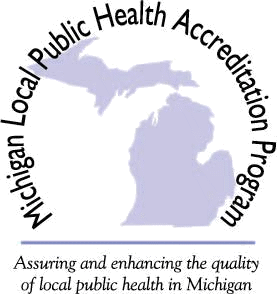MICHIGAN LOCAL PUBLIC HEALTH ACCREDITATION COMMISSION MEETING MINUTES –
1000 WEST CEDAR AVENUE GLADWIN MICHIGAN 48624 TELEPHONE (989)1032021 TEAM MICHIGAN TECHNOLOGICAL UNIVERSITY ELECTRICAL HAZARDS QUIZ 1
12DS812(I160) OFSRAL 2 OF 2 120514 MICHIGAN
2 MICHIGAN TEST FOR TEACHER CERTIFICATION CONTENT ADVISORY COMMITTEE
2200 NORTH SQUIRREL ROAD 216 O’DOWD HALL ROCHESTER MICHIGAN
3 USABLE DESIGN HISTORY CONFERENCE UNIVERSITY OF MICHIGAN OCTOBER
Michigan Local Public Health Accreditation Commission Meeting
Michigan
Local Public Health Accreditation Commission Meeting Minutes – Pending Approval
Minutes – Pending Approval
March 13, 2014
Capitol View Building
________________________________________________________________
Introduction/Teleconference Roll Call
COMMISSION: Kevin Besey, Renée Branch Canady, Melanie Brim (Chair), Jack Enderle, Kathy Forzley (dialed in), Dan Hale (dialed in), Evelyn Kolbe, Michael Mortimore, Liane J. Shekter-Smith, and Rashmi Travis.
GUESTS: Jessie Jones, Rachel Melody, Mark Miller, Dilhara Muthukuda, Amy Peterson, Denise Reinhart, and Debra Tews.
Meeting convened at 9:35 a.m.
General Announcements – All members
Miller welcomed the new commission member. Travis was the former Health Officer of the Allegan County Health Department.
Canady announced that she will be transitioning off of the Commission as she moves into her new role as the director of the Michigan Public Health Institute (MPHI).
Brim announced that she will be leaving the Michigan Department of Community Health (MDCH) for another position.
Agenda Approval – All Members
The agenda was reviewed and accepted. Mortimer initiated the vote, Shekter-Smith moved to support, and the motion carried unanimously.
Minutes of Previous Meeting – All Members
Jones noted that in the minutes from the January meeting discuss District Health Department #10 but then reference the department as Chippewa. This will be updated in the minutes. Tews requested that in the NNPHI update section, Jones name be changed to Tews. Forzley initiated the vote, Besey seconded and the motion carried unanimously.
Local Public Health Department Accreditation Cycle 5 Schedule and CPA Status Updates – Jessie Jones
Jones discussed the Cycle 5 Spreadsheet. The local health departments (LHD) highlighted in grey are LHDs that have already been accredited during Cycle 5. These LHDs are Kalamazoo, Branch-Hillsdale-St. Joseph, Marquette, Delta-Menominee, Chippewa, Ottawa, Muskegon, Tuscola, Grand Traverse, Huron, Van Buren/Cass, Sanilac, DHD#4, St. Clair, Bay, Mid-Michigan, DHD #2, Northwest, Shiawassee, Washtenaw, DHD#10, Kent, Allegan, and Jackson.
LHDs that are in green are currently working through their Corrective Plan(s) of Action (CPAs). These LHDs are Western UP, Benzie-Leelanau, Dickinson-Iron, Berrien, Saginaw, and Genesee.
The LHD in red is in critical status; they have less than 90 days to fully implement their CPAs. The LHD in critical status is LMAS. LMAS has a return visit set up in mid-April and should be able to clear their CPA before their deadline of May 10, 2014.
The two LHDs in blue are ready to be recommended for accreditation by the commission: City of Detroit and Barry-Eaton.
Accreditation status recommendation – Jessie Jones
Jones presented a summary of the LHDs that are eligible for accreditation. Barry-Eaton District Health Department’s On-Site Review occurred the week of March 18, 2013. Barry-Eaton had five missed indicators: one in Powers and Duties, three in Immunization, and one in Children’s Special Health Care Services (CSHCS). Barry-Eaton has fully implemented their CPAs and is eligible for Accreditation. Barry-Eaton participated in the Quality Improvement Supplement (QIS) and met nine out of the ten indicators. They do not have any commonly missed indicators between Cycle 4 and Cycle 5. Since Barry-Eaton missed more than two indicators in Immunization, they are not eligible for Accreditation with Commendation. Mortimore motioned to approve, Canady supported, and the motion carried unanimously. Barry-Eaton District Health Department was recommended for Accreditation.
Detroit Department of Health and Wellness Promotion/Institute for Population Health (DHWP/IPH) was reviewed the week of February 25, 2013. Detroit had nineteen missed indicators: one in Powers and Duties, four in Food Service, one in Immunization, and thirteen in Family Planning. All CPAs have been fully implemented. There were ten commonly missed indicators between Cycle 4 and Cycle 5: MPR 3, MPR 7, and MPR 8 in Food Service, and Indicators 1.1, 3.1, 5.1, 9.1, 11.1, 21.1 and 14.1, in Family Planning. They did not participate in the QIS, so they are not eligible for Accreditation with Commendation.
Miller commented that Detroit struggled for the last 3 years and that MDCH contracted directly with IPH but next year they will contract directly with the health department. The Accreditation program was the one thing that helped hold everything together after years of trying out different models. Miller expressed his appreciation for the staff that worked with the City of Detroit to work through the CPAs.
Mortimore recalled that Detroit asked for an extension and there was a long discussion among the commission. He is glad to see they were able to clear all of the CPAs. Besey commented that it seems like the health department is moving in the right direction. They haven’t been doing the same old, same old year after year. They have new staff and they are trying to figure it out and they will need time to do this. Miller said it will be a very positive event to make a presentation to the health department. Canady asked that the presentation be done to a combined meeting with IPH and DHWP. Tews pointed out that four Family Planning indicators were missed over the 9 year period of 3 cycles. The program might want to take a look at these and examine them closer. Travis said she will follow up with them.
Canady motioned to approve, Mortimore supported, and the motion carried unanimously. Detroit Department of Health and Wellness Promotion/Institute for Population Health was recommended for Accreditation.
Two health departments had their on-site reviews since the last commission meeting in January. Saginaw County Department of Public Health’s Accreditation On-Site Review occurred the week of January 27th, 2014. Saginaw met 144 indicators out of a total of 169. Saginaw missed eight indicators this Cycle: two in Food Service, one in On-Site Wastewater Treatment Management, two in Family Planning, and two in CSHCS. Their CPAs are due on March 26, 2014. Saginaw participated in the QIS and passed all ten indicators. Saginaw did not have any repeat missed indicators between Cycle 4 and Cycle 5.
Genesee County Health Department’s Accreditation On-Site Review occurred the week of February 3rd, 2014. Genesee missed nine indicators this Cycle: two in Food Service, one in On-Site Wastewater Treatment Management, two in Family Planning, and four in CSHCS. Their CPAs are due on April 9, 2014. They did not have any repeat missed indicators between Cycle 3, Cycle 4 and Cycle 5.
Ingham County also had their review since the last commission meeting but their reports have not yet been submitted.
Full Accreditation Notification Letters – Jessie Jones
The 9 LHDs that have received their Cycle 5 Accreditation letters since the last Commission meeting in January 2014, are Sanilac County Health Department, District Health Department #4, St. Clair County Health Department, Health Department of Northwest Michigan, Washtenaw County Health Department, District Health Department #10, Kent County Health Department, Allegan County Health Department, and Jackson County Health Department.
Brim asked if Miller did any presentations for these LHDs. Miller replied that he presented at DHD#10, St. Clair County, and Northwest. Konrad Edwards and Jon Gonzalez have presented to Kent, Allegan, and Jackson.
Accreditation Data Reports – Jessie Jones
The Cycle 5 Missed Indicator by Frequency report provides a list of the indicators that have been most commonly missed by LHDs. Thirty-four Accreditation On-Site Reviews have been completed at this point and thirty-three were reflected in the report.
Jones indicated that there have not been many changes since the last Accreditation Commission meeting. Food Service MPR 8 is the most frequently missed indicator with thirty-five percent (12 LHDs) missing it. Twenty-four percent (eight LHDs) missed Food Service MPR 7, Food Service MPR 20, and CSHCS Indicator 3.2.
The Cumulative Quality Improvement Supplement Missed Indicators Report provides the list of indicators that have been most commonly missed by LHDs who chose to participate in the QIS. The most frequently missed indicator is QI Indicator 3.3, which two LHDs missed. Indicator 3.3 is about assuring QI training and technical assistance are available to staff. Each LHD that has participated in the QIS has met at least nine of the ten indicators and twenty-two out of thirty-four LHDs have participated in the QIS.
Miller commented that most LHDs miss Powers and Duties Indicator 1.6 because the Medical Director does not have the right credentials.
Enderle commented that the Public Health Accreditation Board (PHAB) standards seem to tie in closer with Powers and Duties, rather than the rest of the programs. Miller replied that the Accreditation Efficiencies Committee concluded their meetings and offered several recommendations. Marcus Cheatham will present these at the next Accreditation meeting in June. One of the recommendations was to model the Quality Improvement Supplement of the Powers and Duties program after PHAB’s Domain 9. Miller stated that he is happy to make this change in time for the next cycle.
Jones presented the review evaluation data and explained that the review evaluations are an opportunity for the different sections undergoing the accreditation process to respond to the reviewers about how they feel the review was conducted. Generally all responses fall between the Agree and Strongly Agree range. Nineteen health departments have responded to date, but not every health department responded to every program.
Mortimore commented that the evaluation scores seem to be consistent throughout the programs.
Canady asked about the question that rates the scheduling of the exit interview. Jones replied that this is most likely due to poor communication within the LHD. Jones noted that this question will be removed from future evaluations.
Mortimore expressed that it will be important to keep a close eye on CSHCS since they are new to the Michigan Local Public Health Accreditation Program (MLPHAP).
Jones commented that the On-site Sewage Treatment program’s scores have decreased but that might be because they currently only have one reviewer.
NPHII Update/PHAB Update (State Accreditation) – Debra Tews
Tews provided the NPHII/PHAB Update. The National Public Health Improvement Initiative (NPHII) is a 5 year cooperative agreement funded through the Prevention and Public Health Fund of the Affordable Care Act. 2014 is the 4th year of the NPHII grant. The grant supports state, tribal, local and territorial health agencies to build their organizational capacity for conducting agency-wide performance management and quality improvement for greater public health impact. During the second year of the grant NPHII it was reframed to align with accreditation readiness activities and standards established by PHAB. NPHII grantees are required to complete the 3 PHAB pre-requisites: A community health assessment, community health improvement plan and agency strategic plan. Grantees are also required to complete a self-assessment against the PHAB standards to identify and address gaps in health department plans, policies and practices.
The Public Health Administration (PHA) strategic plan was completed in December, 2013. The plan outlines 12 priority areas, 98 objectives, and 127 measures. Another organizational wide activity was a self-assessment with the help of the Michigan Public Health Institute. PHA is meeting about 75% measures, with some improvement needed across all areas.
In addition to preparing the Public Health Administration for PHAB accreditation, NPHII grant funds have also been used to support MI local health departments’ capacity to achieve PHAB accreditation. Two local health departments, Northwest and Berrien, were awarded mini-grants to move forward in their accreditation readiness activities.
Additionally, PHA along with MPHI will provide 200 hours of technical assistance to local and tribal health departments. This is offered at no cost to the health departments to help with their national accreditation readiness activities, quality improvement, and performance management activities. The applications are due in April. Last year, nine local health departments and 1 tribal health agency received technical assistance for accreditation readiness activities. Tews received positive feedback on the usefulness of the technical assistance bank last year.
The Office of Performance Improvement and Management distributed another issue of AccREADYness, the Public Health Administration’s PHAB accreditation readiness newsletter for local and tribal health departments in MI. The newsletter provides tips and tools as well as access to resources to prepare for PHAB accreditation. It is Michigan specific, but calls attention to national information as well. The newsletter features accreditation coordinators across Michigan LHDs in the hopes of trying to bridge the gap of unfamiliarity among coordinators across the state.
The Michigan Public Health Association (MPHA) received funding from the American Public Health Association to lead national accreditation readiness activities in the state. MPHA is hosting three webinars that will cover several different topics related to PHAB. Michigan’s accreditation coordinators will share their lessons learned on these topics.
Tews announced that the NPHII grant will not continue next year so she is looking at ways to sustain the gains that have been made over the last few years and keep the momentum going after the funding ends.
Communicable Disease Division’s Remote Accreditation Process – CD Staff
Miller introduced the staff from Communicable Disease (CD) Accreditation team: Erin Cranell, Tim Bolen, and Shannon Johnson. The CD team presented on their remote Accreditation process.
A short discussion followed the presentation. The CD staff talked about the evaluations they receive after the accreditation reviews. Most of the negative comments are about the lack of face-to-face interaction during the exit interview. Johnson commented that it might be because the staff wasn’t familiar with the technology. Canady commented that it might be because of the staff composition- young vs. old.
Bolen remarked that he doesn’t understand the comment about the higher level staff not participating. In his experience, more medical directors and health officers are able to participate because they don’t have multiple other exit interviews going on at the same time. Johnson said that some LHDs are prepared weeks ahead of time so it takes some of the pressure off the reviewers to get through the documentation. However, it does take a little longer to go through online compared to going through the binder.
Miller and Travis commented that other programs should be encouraged to use MI-HAN for their reviews. Miller added that the CD program has regional epidemiologists who are able to visit the health departments and build relationships. Miller admitted that although he was resistant at first, he receives many positive comments about the CD review process when doing the reviews and presentations. So good job!
Brim requested that the presentation materials be sent to the Commission members. Johnson agreed to follow up.
Other Items
Miller announced that Brim is leaving the Commission and taking a position at the Michigan Health Council. Miller thanked Brim for her service and wished her good luck in her next position.
Meeting adjourned at 10:49am.
Next Commission Meeting - Thursday, June 12, 2014 from 9:30 a.m. – 11:30 a.m. at the Michigan Department of Community Health - Capitol View Building at 201 Townsend Street, Lansing, Michigan.
7800 E MICHIGAN AVE KALAMAZOO MICHIGAN 49048 PHONE (800)
7800 E MICHIGAN AVE KALAMAZOO MICHIGAN 49048 TÉLÉPHONE (800)
ACF NATIONALS 2011 PACKET BY MICHIGAN A (BRYAN BEREND
Tags: accreditation commission, the accreditation, local, meeting, michigan, accreditation, commission, minutes, public, health
- DECALOGO DEL APRENDIZ DE BALONMANO SACADA DE LA
- A DIFFERENT ASSESSMENT OF THE GHG EMISIONS LINKED TO
- PANEVĖŽIO RAJONO SAVIVALDYBĖS VISUOMENĖS SVEIKATOS BIURO 2016–2018 METŲ KORUPCIJOS
- DEKLARACJA UCZESTNICTWA W PROJEKCIE „MAŁOPOLSKA CHMURA EDUKACYJNA – WYKORZYSTANIE
- FUNKCJONALNY SCHEMAT ORGANIZACYJNY MPWIK SPÓŁKA Z OO W ŁOMŻY
- OSEBE S SLADKORNO BOLEZNIJO NAJBOLJ OGROŽAJO SRČNOŽILNE BOLEZNI ZVEZA
- JAMAS LEI A ONETTI POR SUPUESTO UNO DE LOS
- 25 AÑOS DE ILUSIÓN DESPUÉS DE UN LARGO CAMINO
- GUÍA DE PREGUNTAS PRÓLOGO A LA INTRODUCCION A
- CONCURSOS ARABA 1 PROYECTO SERVICIO DE LIMPIEZA DE LOS
- OUR ORGANISATION YORK MUSEUMS TRUST IS AN INDEPENDENT CHARITABLE
- TITLE OF THE DATA SET HISTORICAL SUNSHINE AND CLOUD
- ¿… ERES VIEJO…O ERES MAYOR? P GREGORIO IRIARTE OMI
- SOMMAIRE 1 L’ENVIRONNEMENT DE L’ESPACE DE VIE
- PREDMET POJAŠNJENJE KONKURSNE DOKUMENTACIJE НАРУЧИЛАЦ VISOKA ŠKOLA STRUKOVNIH STUDIJA
- 20melilla
- A EPISODE 26 10TH SEPTEMBER 2013 CTIVITY MAKING MONEY
- MOBILE PHONE POLICY MOBILE PHONES ARE NOW A FEATURE
- STRATEGIE V OBLASTI POHYBOVÉ AKTIVITY ZÁKON Č 2582000
- SUPPLEMENTARY INFORMATION IMPLEMENTATION OF OUTSTANDING ELECTRONIC TRANSPORT IN POLAR
- BA ZÁRÓVIZSGA 2019 1 A AZ ŐSKOR MŰVÉSZETE ÉS
- T60 – GUIDE FORM SPECIFICATION FIRMWARE REVISION 760 SPECIFICATION
- ANTONIO SAURA (HUESCA 1930 – CUENCA 1998) COMENZÓ A
- reglamentocatedras5_1
- ATTACHMENT M AIR POLLUTION CONTROL DEVICE SHEET (MECHANICAL
- LEGGE 24 DICEMBRE 2007 N 244 (FINANZIARIA 2008) ARTICOLO
- NAME SOMMA ELA FINAL COPIES OF YOUR
- (TO BE PRINTED ON INSTITUTION HEADED PAPER) AML 17
- UNDERGRADUATE PROGRAMME HANDBOOK BSC (HONS) MIDWIFERY 201819 NURSING HEALTH
- VALORACIÓN MÉDICA INICIAL A REALIZAR EN LOS CENTROS DE
 SEVERE DISABLEMENT ALLOWANCE A GUIDE FOR 20 TO
SEVERE DISABLEMENT ALLOWANCE A GUIDE FOR 20 TOCONSILIUL JUDETEAN BRAILA PROCESVERBAL INTOCMIT IN CADRUL SEDINTEI EXTRAORDINARE
 JORNADAS DE INVIERNO FICHA DE INSCRIPCIÓN Nº CORRELATIVO (CADA
JORNADAS DE INVIERNO FICHA DE INSCRIPCIÓN Nº CORRELATIVO (CADA 1)SOLICITUD N° 11)MSREFL 13) 12)MSRPBL FPERC039 MODIFICACIÓN DE LA
1)SOLICITUD N° 11)MSREFL 13) 12)MSRPBL FPERC039 MODIFICACIÓN DE LAESTATUTOS DEL COLEGIO OFICIAL DE TRABAJO SOCIAL DE CÁCERES
 DOKUMENTATION LSMW UPLOAD AUS EXCEL EXCEL TABELLE IM
DOKUMENTATION LSMW UPLOAD AUS EXCEL EXCEL TABELLE IM EXPOSURE DRAFT 2016‑2017‑2018 THE PARLIAMENT OF THE COMMONWEALTH OF
EXPOSURE DRAFT 2016‑2017‑2018 THE PARLIAMENT OF THE COMMONWEALTH OFISKOLÁNK ÖKOISKOLAI TEVÉKENYSÉGÉNEK ÁLTALÁNOS BEMUTATÁSA ISKOLÁNK SASHALOM KERTVÁROSI RÉSZÉN
 INSTRUCTIVO IMPUESTO A LAS GANANCIAS 2017 INSTRUCTIVO PARA COMPLETAR
INSTRUCTIVO IMPUESTO A LAS GANANCIAS 2017 INSTRUCTIVO PARA COMPLETARTHIS TOOLKIT OR WORKSHEET HAS BEEN DEVELOPED TO USE
2 ANETA KOZŁOWSKA WARSZAWA DN 10122009R NAUCZYCIEL W ZESPOLE
 7 HOSTING NAWRA A SIMPLE GUIDE INTRODUCTION DID
7 HOSTING NAWRA A SIMPLE GUIDE INTRODUCTION DIDPLAVI CVIJET POBJEDNICI 2002 KATEGORIJA MJESTO NAGRAĐENI GRADOVI
WRITE TO COMMUNICATE PURPOSE AND AUDIENCE PROGRESSION SPELLING PROGRESSION
 FINDINGS ON ALIGNMENT OF INSTRUCTION USING ENACTED CURRICULUM DATA
FINDINGS ON ALIGNMENT OF INSTRUCTION USING ENACTED CURRICULUM DATA ELABORACIÓN DE VINOS SE CONOCE CON EL NOMBRE DE
ELABORACIÓN DE VINOS SE CONOCE CON EL NOMBRE DEUNIVERSITY OF WEST FLORIDA WRITING LAB BUSINESS LETTER COMPONENTS
CHECK LIST 1 RADIO PAGING (CAPTIVE) LICENSE APPLICATION
 WYZNACZ X JEZELI LICZBY X3 5 X+7 SĄ PIERWSZYM
WYZNACZ X JEZELI LICZBY X3 5 X+7 SĄ PIERWSZYMR99 LAB ORDERING PROCESS – REFERENCE TOOL FOR INVESTIGATORSSTUDY